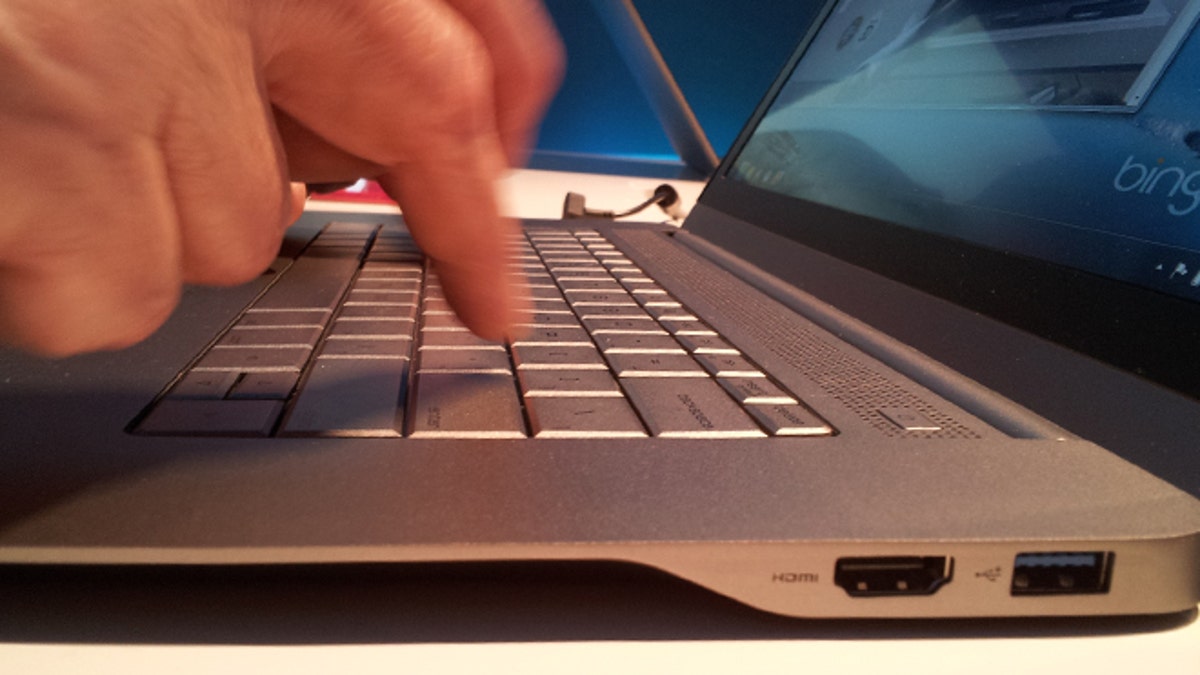
Just how secure is YOUR password? (FoxNews.com / Jeremy A. Kaplan)
You can drink four cups of coffee and take a shower in the time it takes your computer to start. When it finally does boot, trying to get anything done feels like you're moving through molasses.
It ran so snappy when you bought it. Now you just want to toss it in the dumper and head for the nearest electronics store.
Try these tricks to speed up your machine first. Your wallet will thank you!
1. Free up and optimize hard disk space
A hard drive that's nearly full will slow down your computer. First, get rid of temporary Internet and Windows files with the free program CCleaner.
Then, in Start>>Control Panel, run Disk Defragmenter (Optimize Drives in Windows 8) to consolidate fragmented files and folders and speed up reading and writing to the disk. Also run the Error Checking utility, which scans the drive for bad sectors and file system errors.
If you're still close to your hard drive's storage limit, consider moving your photo, video or music library to an external drive. Use a free disk-visualizing program such as WinDirStat to see what other applications and files are taking up the most space.
Two more free programs help. Grab Revo Uninstaller to thoroughly remove any programs you don't use anymore. Zap trial software and other unwanted bloatware with PC Decrapifier.
2. Speed up your startup
If you can afford it, installing a solid-state hard drive will make your older PC like new again.
SSDs boot up and launch apps in a flash compared to conventional HDDs. You can install one in a second storage bay. If you can live without an optical DVD/CD drive, that can be removed and replaced with an SSD, too. Of course, it will set you back a bit. A 128GB drive costs about $120.
Before you do that, it's a good idea to check whether you have too many programs that start automatically when you turn on your computer. These take away resources that your computer needs during startup.
Autoruns is a freebie that can help reduce the load. It finds and disables programs that start automatically so they don't slow you down. But it won't stop those important startup processes you need, like security software.
Cleaning up your registry with CCleaner can trim your startup time, too. Don't stray too far from the program's default settings, though, or you can damage programs and Windows.
3. Increase your RAM
If you only have 1 or 2GB of RAM and do a lot of multitasking, upping your RAM to 4GB is a sensible upgrade.
When programs and files in current use fill up your available RAM, the computer processor has to read data from the much slower hard disk.
4. Boost your browsing
A slow Internet connection is just as frustrating as a slow computer. The fix for that could be as simple as dumping Internet Explorer for the more nimble Firefox or Chrome.
Getting rid of junky toolbars will also streamline your browsing. You do this manually in the browser add-on settings, or use a program like Toolbar Cleaner.
If you suspect the problem is in your wireless network, first check that the Internet speed you're getting is as fast as what you're paying for. This great service will give your Internet connection a quick speed test.
You can tweak your router's settings to eliminate hang-ups and bottlenecks. If your wireless signal is weak or your home has dead spots, try these five easy tricks for giving it a boost.
5. Use faster software
Free, open-source software programs not only save you a bundle of money, they're often leaner and faster than their bloated commercial counterparts.
Dump Adobe Reader for Foxit Reader or Sumatra to breeze through PDF documents. GIMP has most of the features and power of Photoshop without being a resource hog. Replace Microsoft Office and Outlook with LibreOffice and Thunderbird and watch your productivity take flight. Try VLC instead of Windows Media Player.
6. Remove pesky spyware and viruses
In addition to compromising your privacy, spyware and viruses will bog down your PC's performance.
Combat this malware by scanning your machine. If you need anti-virus software and spyware remover, visit my Security Center for free programs. Run the scans and remove what it finds.
Remember to update your security programs often so you can stay protected from emerging threats. Weekly scans help, too.
Copyright 2013, WestStar Multimedia Entertainment. All rights reserved.
Kim Komando hosts the nation's largest talk radio show about consumer electronics, computers and the Internet. To get the podcast, watch the show or find the station nearest you, visit: http://www.komando.com/listen. To subscribe to Kim's free email newsletters, sign-up at: http://www.komando.com/newsletters.








































